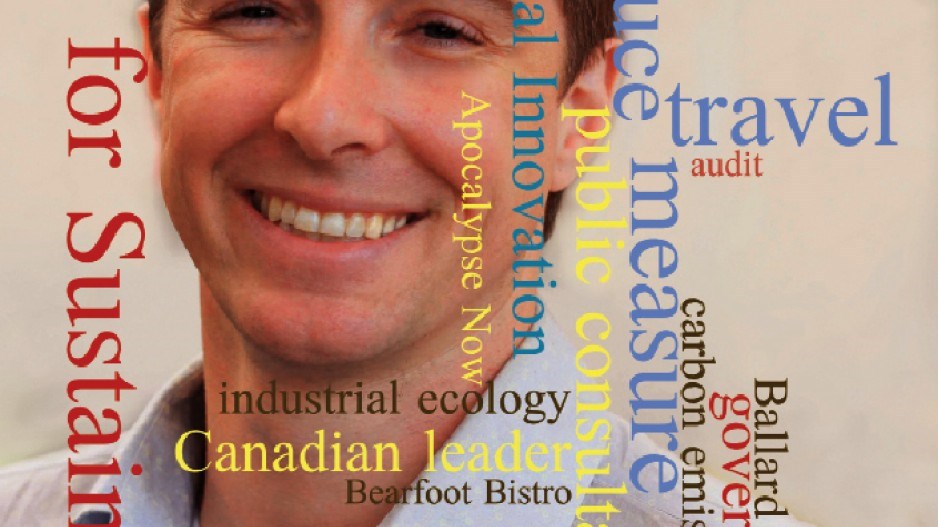As a conference delegate at Globe 2004, James Tansey was surprised that there was no option to purchase offsets when buying a travel ticket.
This led him and fellow University of British Columbia professor Hadi Dowlatabadi to start Offsetters Clean Technology Inc., a 20-employee Vancouver-based business that since 2007 has helped hundreds of companies and thousands of individuals understand, measure, reduce and offset their carbon emissions.
Tansey has grown Offsetters into a Canadian leader in offset production and sales, with revenues projected to increase fivefold to $2.5 million in 2009 from 2008.
And as official carbon-offset supplier to the Winter Olympic Games, the company is beginning to move onto the international stage.
For the Olympics, Tansey has pioneered a unique partnership involving several B.C. clean-technology companies, including Nexterra Systems Corp., Ballard Power Systems Inc. and Sempa Power Systems Ltd., who will be showcasing B.C. technology to the world – as well as preventing the emissions of up to 300,000 tonnes of greenhouse gases.
Offsetters works with clients to audit their greenhouse-gas emissions and to develop reduction strategies. What can’t be reduced is offset by putting a value on the amount of carbon produced within a company and then investing that amount of money into clean-technology projects outside the company.
As executive director of the Centre for Sustainability and Social Innovation at UBC and associate professor at the university’s Sauder School of Business, Tansey has written extensively on the role of public consultation in the governance of industrial societies, industrial ecology, scenario methods and climate change.
Offsetters’ clients range from a realtor and a yoga studio to hotels and a couple of airlines.
“From a marketing perspective, clients like Harbour Air end up getting a position of leadership among consumers,” he said. “They’re able to attract more business because they’re a leader on climate issues.
“The bottom line is most Canadians think that climate change is a real issue. They want to see people doing something about it.” •




